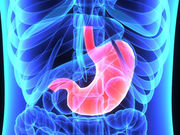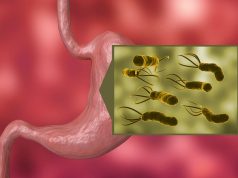Epithelial thickness is best performing criterion for GERD diagnosis in patients with upper GI symptoms
FRIDAY, Oct. 28, 2016 (HealthDay News) — Epithelial thickness seems to be a marker for gastroesophageal reflux disease (GERD), according to research published in the November issue of Clinical Gastroenterology and Hepatology.
Michael Vieth, M.D., Ph.D., from Klinikum Bayreuth in Germany, and colleagues performed a post-hoc analysis of data from the Diamond study conducted in Europe and Canada on adults with frequent upper gastrointestinal symptoms who had not taken a proton pump inhibitor in the previous two months. Biopsies were collected from 336 patients from 0.5 and 2.0 cm above the Z line and were analyzed independently at pathology centers in Germany and Italy.
The researchers found that total epithelial thickness was the best-performing criterion for diagnosis of investigation-defined GERD at the assessment site for basal cell layer thickness. At 0.5 and 2.0 cm above the Z line it also identified nonerosive reflux disease, reflux esophagitis, and pathologic esophageal acid exposure. Patients with GERD were not identified by basal cell layer thickness and presence of dilated intercellular spaces. Total epithelial thickness at 0.5 and 2.0 cm above the Z line had the best agreement between assessments carried out at the two pathology centers.
“Based on an analysis of 336 patients with frequent upper gastrointestinal symptoms, total epithelial thickness is a robust histologic marker for GERD,” the authors write.
Several authors disclosed financial ties to pharmaceutical companies, including AstraZeneca Gothenburg, which funded the study.
Full Text
Copyright © 2016 HealthDay. All rights reserved.








